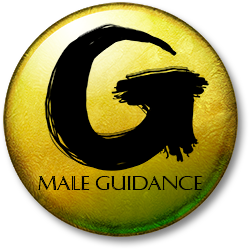
Depression in Men: More Than Just Feeling Blue
Understanding the Hidden Struggle
Depression is a pervasive mental health issue affecting millions worldwide, yet its manifestation in men is often misunderstood and overlooked. Contrary to the typical portrayal of depression as persistent sadness, men’s experiences can differ significantly, leading to underdiagnosis and under-treatment. This blog post aims to shed light on the unique ways depression manifests in men, the symptoms often missed, and strategies for effective recognition, intervention, and support.

How Depression Manifests in Men
Men may experience the standard symptoms of depression, such as feelings of sadness, fatigue, and a loss of interest in once pleasurable activities. However, depression in men often presents itself differently due to a variety of social, cultural, and physiological factors. Some men might exhibit more externalized symptoms like irritability, sudden anger, or increased risk-taking behaviors. They might complain of physical symptoms like headaches, sleep disturbances, or digestive issues. Recognizing these atypical signs is crucial in understanding and addressing men’s mental health needs.
Commonly Overlooked Symptoms
- Emotional Withdrawal: Men might pull away from family and friends, becoming more isolated and less communicative.
- Increased Substance Use: An uptick in alcohol consumption or other substances might be a coping mechanism for underlying issues.
- Difficulty Concentrating: Issues with focus and decision-making can signify depression, often mistaken for lack of effort or interest.
- Physical Pain: Unexplained aches, headaches, or digestive problems can be physical manifestations of depression.
- Anger or Aggression: Irritability, frustration, or anger outbursts can sometimes mask inner emotional turmoil.
Effective Strategies for Recognition and Intervention
- Promote Open Conversations: Cultivate an environment where discussing mental health and emotions is normalized and encouraged.
- Educate About Symptoms: Spread awareness about the unique signs of depression in men to friends, families, and communities.
- Encourage Professional Help: Destigmatize therapy and counseling and guide men toward seeking professional assistance.
- Support Through Listening: Offer an empathetic ear without judgment, allowing men to express their feelings and experiences freely.
- Advocate for Routine Screenings: Encourage regular mental health screenings as a part of general health check-ups.
Ongoing Support and Management
Managing depression is a continuous process that may involve therapy, medication, lifestyle changes, or a combination of these. Support from loved ones, maintaining a healthy routine, and regular check-ins with mental health professionals can all be part of an effective management plan. It’s also important to recognize the role of community in supporting men’s mental health, from peer support groups to broader societal changes in addressing and normalizing mental health discussions.
Denouement
Depression in men is a complex issue masked by cultural expectations and personal reluctance to seek help. Understanding the unique ways in which men experience and express depression is vital in offering appropriate support and intervention. By recognizing the often overlooked symptoms and advocating for open, informed discussions about men’s mental health, we can pave the way for more men to receive the help they need. Remember, acknowledging vulnerability is a strength, not a weakness, and seeking help is the first step towards healing.











